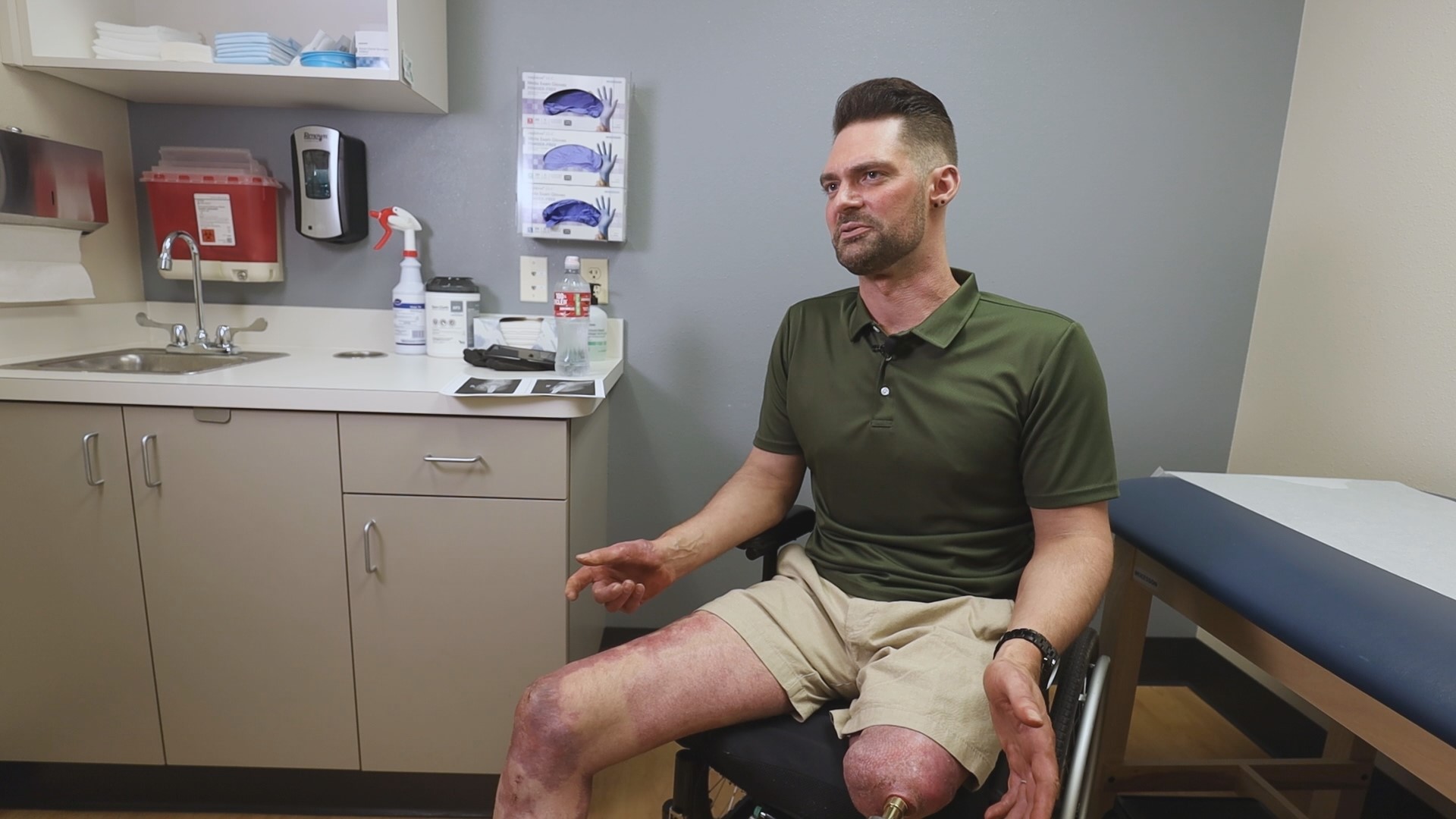PORTLAND, Ore. — A surgeon in Oregon completed the first osseointegration surgery in the Pacific Northwest, which medical experts call a pioneering procedure that marks a significant milestone in the field of prosthetic limb technology.
The surgery involves the insertion of a titanium implant into the bone of a patient, allowing for the direct attachment of a prosthetic limb.
According to doctors, the approach offers several advantages over traditional arm and leg socket-mounted prosthetics. For the patients who have the operation, it can be life-changing, giving them more independence, decreased pain, and regained "osseoperception" — or the ability to feel the ground underneath them.
Dr. Steve Wallace, the lead surgeon behind the osseointegration procedure, called it "a game changer" and said "it's giving people their lives back." Since completing the first osseointegration surgery, Wallace has provided this revolutionary opportunity to two more patients.
One of his patients was Nick Garwood, who had his legs amputated after a rare bacterial infection.
"I thought it was just a bruise on my leg at first, but six days later, I was in the ICU, unconscious with necrotizing fasciitis, septic and toxic shock," he said. "It was like ... being trapped inside my own dead body. It was the longest, purest suffering that I've ever been through."
Garwood said, the doctors saved his life — but the cost was his legs.
"I found out almost immediately that the socket prostheses, the first legs that I had, were not going to work because of the skin breakdown. It was just there was no way we were going to make those work," Garwood said.
He'd been looking into alternatives and options — specifically osseointegration — when Wallace transferred to the Portland area.
"I would be able to be stronger, faster, and just overall more capable," he said. "It was so amazing that Dr. Wallace was here and could do it locally."
Wallace said osseointegration is a relatively new technique used for amputation patients.
"It’s a device that is inserted into the bone, goes through the skin and allows for a direct attachment of prosthesis," Wallace said. "These implants were basically scaled up from a dental implant many years ago. They’ve been in the U.S. for probably 10 years or so, but are becoming more and more popular, and not fully FDA approved yet, but we get them approved on a provisional basis."
Following Garwood's surgery at Legacy Emanuel, healthcare professionals at Summit Orthopaedics helped him get the prosthetic limbs fitted and adjusted. Then, he tested them out, standing on two legs for the first time in nearly two years.
"He has had a long journey and has been in his wheelchair, and today was the first time he was standing on his feet for the first time," Wallace said.
"It felt amazing. It really felt amazing," Garwood said. "I could feel the ground beneath me, through my bone. That makes it so much easier to walk. I know where my foot is in space, in the same intuitive way that I knew where my foot was when I had my real natural limbs. It feels like I am stepping on the ground. I can feel that same feedback."

